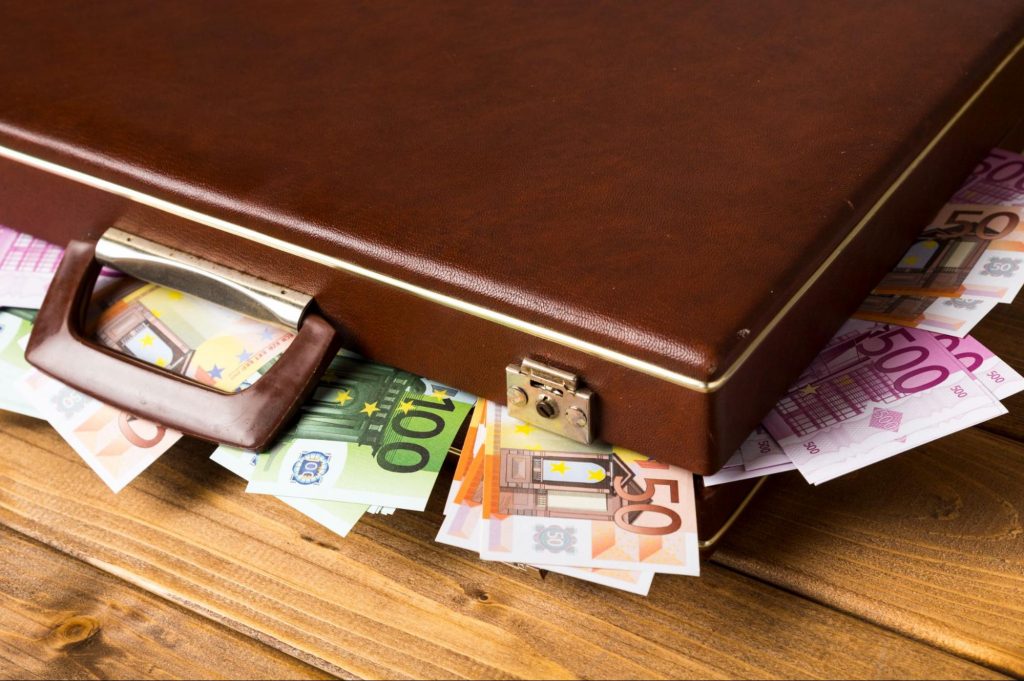
Budgeting Your European Adventure: Cost to Travel in Europe
Europe is a dream destination for many travelers, offering a rich tapestry of history, culture, and breathtaking landscapes. However, one crucial aspect that every traveler must consider is the cost of exploring this diverse continent. From accommodation and transportation to food and attractions, understanding the expenses involved is essential for budgeting your European adventure. In this article, we will delve into various aspects of traveling in Europe, providing a comprehensive overview of the costs involved.
Accommodation Expenses
- Hotels: The cost of hotels in Europe can vary greatly depending on the location and season. On average, budget hotels can range from €50 to €100 per night, while mid-range options may cost between €100 and €200 per night;
- Hostels: Hostels are popular among budget-conscious travelers, with prices ranging from €20 to €40 per night for a dormitory-style room;
- Vacation Rentals: Platforms like Airbnb offer a range of vacation rentals, from private rooms to entire apartments. Prices vary depending on the city and the type of accommodation but expect to pay around €50 to €150 per night.
Transportation Costs
- Flights: The cost of flights to Europe depends on various factors such as the departure city, travel dates, and airline. On average, round-trip flights from the United States to major European cities can range from $500 to $1,500, although prices can fluctuate significantly;
- Train Travel: Europe boasts an extensive and efficient rail network, making train travel a popular choice. Prices for train tickets depend on the distance traveled and the type of train. For example, a three-hour journey between major cities might cost around €50 to €100;
- Buses: Bus travel is a budget-friendly option in Europe, with companies like FlixBus offering affordable fares. Prices for bus tickets can range from €5 to €50 depending on the distance and route;
- Local Transportation: Most European cities have excellent public transportation systems, including metros, buses, and trams. The cost of local transportation varies by city but generally ranges from €1.50 to €3 per single journey.
Food and Dining Expenses
Dining out in Europe can be expensive or affordable depending on your choices:
- High-end restaurants can cost upwards of €50 per person for a three-course meal;
- Mid-range establishments may charge €15 to €30;
- Budget travelers can opt for street food or local markets, where you can find delicious and inexpensive meals for around €5 to €10.
As for grocery shopping, If you’re on a tight budget, shopping at local grocery stores or markets and preparing your meals can be a cost-effective option. Expect to spend around €30 to €50 per week on groceries, depending on your eating habits and location.
Sightseeing and Attractions
- Museums and Galleries: Entrance fees for museums and galleries vary across Europe. While some museums offer free admission, others can charge between €5 and €20. Look out for city passes or museum cards that offer discounted or free entry to multiple attractions;
- Landmarks and Monuments: Visiting famous landmarks and monuments often comes with a fee. Prices range from €5 to €30, depending on the attraction. Consider purchasing attraction passes if you plan to visit multiple sites, as they can offer savings;
- Guided Tours: If you’re interested in guided tours, the cost will depend on the duration and the type of tour. Walking tours or group tours can cost between €10 and €30 per person, while private tours can range from €50 to €150.

Miscellaneous Expenses
Travel Insurance
It’s highly recommended to have travel insurance when visiting Europe. The cost of travel insurance varies based on factors like the duration of your trip, your age, and the coverage you require. On average, expect to pay around 5-10% of your total trip cost for insurance.
SIM Cards and Internet
Staying connected is essential while traveling. SIM cards can be purchased in Europe for around €10 to €30, offering data and local calling. Alternatively, many cities have free Wi-Fi hotspots available in public areas.
Souvenirs and Shopping
Budgeting for souvenirs and shopping depend on your personal preferences. Europe offers a wide array of shopping opportunities, from high-end boutiques to local markets. Allocate a separate budget for shopping, keeping in mind that prices can vary significantly.
Seasonal Variations
Off-Peak Travel
Traveling during the off-peak season, which typically falls between November and March (excluding holidays), can help reduce costs. Flights, accommodations, and attractions often offer discounted rates during this time.
Peak Travel
Traveling can be more expensive during the following time:
- The summer months (June to August);
- Popular holiday periods like Christmas and Easter.
Prices for accommodations and flights tend to increase, and attractions may be more crowded.
Currency Exchange and Transaction Fees
When traveling to Europe, it’s important to consider currency exchange rates. Exchange rates can vary, so it’s advisable to compare rates from different sources like banks or currency exchange offices to get the best deal. Avoid exchanging currency at airports, as they often have higher rates and fees.
Also, be aware of transaction fees when using credit cards or withdrawing cash from ATMs. Some banks charge international transaction fees or foreign ATM withdrawal fees. Consider obtaining a travel-friendly credit card with no or low foreign transaction fees to save on costs.

Budget Travel Tips
- Plan in Advance: Booking accommodations and flights in advance can often lead to better deals. Research and compare prices to find the most affordable options;
- Use Budget Airlines: Europe has several low-cost airlines that offer budget-friendly fares for intercity and regional travel. Examples include Ryanair, easyJet, and Wizz Air;
- Eat Like a Local: Exploring local cuisine and dining at local eateries can often be more affordable than touristy restaurants. Look for recommendations from locals or online resources to find hidden gems;
- Take Advantage of Free Activities: Europe offers numerous free attractions, parks, and events. Take advantage of these opportunities to experience the local culture without spending money;
- Walk and Use Public Transportation: Walking is a great way to explore European cities, as many major attractions are within walking distance. Additionally, utilizing public transportation such as metros or buses can be cost-effective compared to taxis or private transfers.
Country-Specific Cost Considerations
- Western Europe: Countries like France, Germany, and Italy tend to be more expensive than their Eastern European counterparts. Cities like Paris, London, and Zurich often have higher price levels;
- Eastern Europe: Countries like Poland, Hungary, and the Czech Republic generally have lower price levels compared to Western Europe. Traveling in Eastern Europe can be more budget-friendly, offering excellent value for money;
- Scandinavia: Norway, Sweden, Denmark, and Finland are known for their high cost of living. Expect higher prices for accommodations, food, and transportation in this region.
Here is a table showcasing popular European destinations and approximate costs for accommodation, meals, transportation, and attractions per day. Please note that these are average costs and can vary depending on factors such as season, location within the city, and personal preferences.
| Destination | Accommodation (per night) | Meals (per day) | Transportation (per day) | Attractions (per day) |
|---|---|---|---|---|
| Paris, France | €100 – €200 | €25 – €50 | €5 – €10 | €10 – €20 |
| Rome, Italy | €80 – €150 | €20 – €40 | €5 – €10 | €10 – €20 |
| Barcelona, Spain | €80 – €150 | €15 – €30 | €5 – €10 | €10 – €20 |
| Amsterdam, Netherlands | €100 – €200 | €20 – €40 | €5 – €10 | €10 – €20 |
| Berlin, Germany | €60 – €120 | €15 – €30 | €5 – €10 | €10 – €20 |
| Prague, Czech Republic | €40 – €80 | €10 – €20 | €3 – €5 | €5 – €15 |
| Athens, Greece | €60 – €120 | €15 – €30 | €3 – €5 | €10 – €20 |
| London, United Kingdom | €100 – €200 | €30 – €50 | €10 – €15 | €15 – €30 |
| Vienna, Austria | €80 – €150 | €20 – €40 | €5 – €10 | €10 – €20 |
| Budapest, Hungary | €40 – €80 | €10 – €20 | €3 – €5 | €5 – €15 |
Please keep in mind that these are average costs, and prices may vary depending on factors such as the type of accommodation, dining preferences, mode of transportation, and the specific attractions visited.
Conclusion
Traveling in Europe can be an incredibly rewarding experience, but it’s essential to plan and budget accordingly. By considering the costs of accommodation, transportation, food, attractions, and miscellaneous expenses, you can estimate the total amount required for your European adventure. Remember that costs can vary based on factors such as the country, city, and your personal preferences. With careful planning and a realistic budget, you can make the most of your journey through the captivating wonders of Europe without breaking the bank.
Yuriy Moshes has spanned several areas of law but his expertise lies in litigation and real estate transactions. Over the years, he has assisted homeowners understand their options and either remain in their home or pursue possible liquidation options. He graduated from Brooklyn College with a Bachelors of Science degree and a Juris Doctor from the Touro College Jacob D. Fuchsberg Law Center.